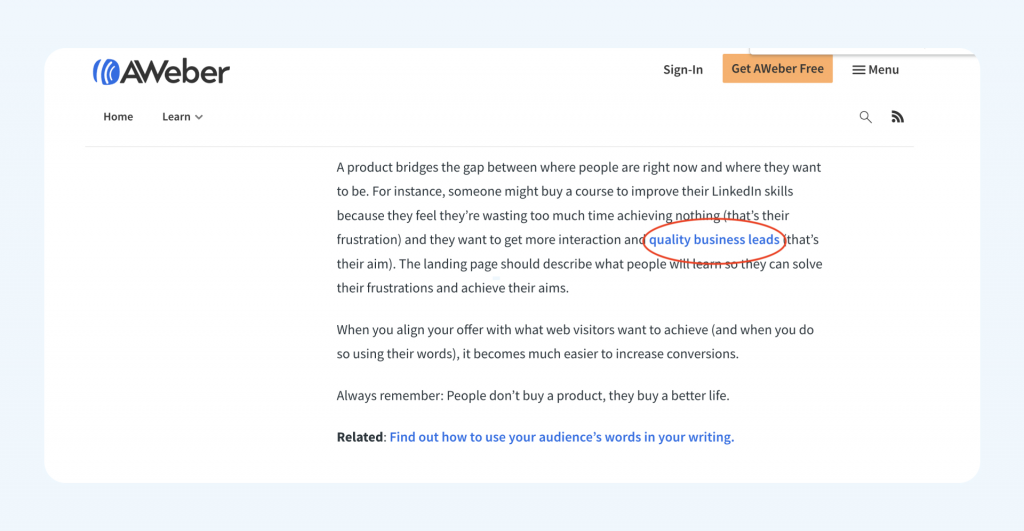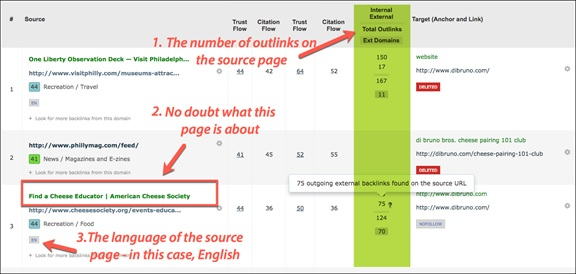The Fundamentals of Off-Page SEO for Your Business
I. Introduction
In today’s highly competitive digital landscape, businesses need to implement effective search engine optimization (SEO) strategies to succeed online. One crucial aspect of SEO is off-page optimization, which includes link building.
Link building is the process of acquiring hyperlinks from other websites to your own website. These hyperlinks, also known as backlinks, are crucial for building authority and improving search engine rankings. Essentially, search engines consider each backlink to your site as a vote of confidence from other websites, indicating that your content is valuable and relevant.
However, not all backlinks are created equal. Low-quality links from spammy or irrelevant websites can actually harm your SEO efforts and damage your reputation. That’s why it’s essential to understand the fundamentals of link building and implement ethical strategies for building high-quality links.
In this comprehensive guide, we’ll cover everything you need to know about link building for off-page SEO. We’ll start by defining the different types of links and explaining why link building matters for SEO. From there, we’ll explore various link building strategies, including guest blogging, broken link building, and resource page link building.
We’ll also discuss the importance of building high-quality links that are relevant, authoritative, and trustworthy. You’ll learn how to measure link building success and track your progress over time.
Finally, we’ll cover common link building mistakes to avoid and provide tips for ethical link building practices. By the end of this guide, you’ll have a solid understanding of link building fundamentals and be equipped with the knowledge and strategies needed to improve your off-page SEO efforts and drive more traffic to your website.
II. Types of Links
When it comes to link building, there are three main types of links that you need to understand: inbound, outbound, and internal links. Each type of link serves a unique purpose and can impact your SEO efforts in different ways.
Inbound links

also known as backlinks, are links that point from other websites to your website. These links are essential for building authority and improving search engine rankings. When search engines see that other reputable websites are linking to your site, they consider it to be a sign of quality and relevance.
Outbound links

on the other hand, are links that point from your website to other websites. While outbound links don’t directly impact your search engine rankings, they can be beneficial for providing value to your visitors and establishing your website as a reputable source of information.
Finally, internal links are links that point from one page on your website to another page on the same website. Internal links are essential for improving website navigation, making it easier for visitors to find and access the content they’re looking for. Additionally, internal links can help search engines understand the structure and hierarchy of your website, which can improve your overall search engine rankings.
It’s important to note that not all links are created equal. The quality of a link is determined by a variety of factors, including the authority and relevance of the linking website, the anchor text used for the link, and the context in which the link is used.
In general, high-quality links from reputable websites that are relevant to your industry or niche are the most valuable. These types of links can help improve your search engine rankings and drive more traffic to your website.
Understanding the different types of links and how they impact your SEO efforts is essential for successful link building. By focusing on building high-quality, relevant links from authoritative websites, you can improve your off-page SEO and drive more traffic to your website.
III. Why Link Building Matters for SEO
Link building is a critical component of off-page SEO and plays a significant role in improving your website’s search engine rankings. Search engines like Google use links as a way to measure the authority, relevance, and trustworthiness of a website.
The more high-quality links your website has, the more search engines will view it as a reputable and valuable source of information. This, in turn, can lead to higher search engine rankings, more visibility in search results, and ultimately, more traffic to your website.
However, it’s important to note that not all links are created equal. In the past, some website owners would engage in unethical practices like buying links or participating in link schemes to artificially inflate their rankings. These practices are now considered black hat SEO and can result in severe penalties, including complete removal from search engine results.
Instead, it’s essential to focus on building high-quality, natural links from reputable sources. This can be achieved through a variety of tactics, including guest blogging, broken link building, and creating high-quality content that other websites want to link to.
In addition to improving your search engine rankings, link building can also help establish your website as a thought leader and industry expert. When other reputable websites link to your content, it shows that you are a trusted source of information and can help build your brand’s reputation.
Ultimately, link building is a crucial aspect of off-page SEO that can help improve your website’s search engine rankings and drive more traffic to your site. By focusing on building high-quality links from reputable sources and avoiding unethical practices, you can establish your website as a valuable resource and achieve long-term success in the digital landscape.
IV. Link Building Strategies
There are many different strategies that can be used for link building. Some of the most effective strategies include:
- Guest blogging: This involves writing and publishing articles on other websites within your industry. In exchange, you can include a link back to your website within the article, which can help improve your search engine rankings.
- Broken link building: This strategy involves finding broken links on other websites within your industry and reaching out to the website owner to suggest a replacement link, which could be a link to your website.
- Resource page link building: This involves identifying high-quality resource pages within your industry and reaching out to the website owner to request a link to your website be included on the page.
- Skyscraper technique: This involves creating high-quality, in-depth content that is better than any other content on a specific topic within your industry. Then, you reach out to other websites within your industry to ask them to link to your content because it provides more value to their readers.
- Infographic link building: This involves creating high-quality infographics that provide valuable information within your industry. You then reach out to other websites within your industry and ask them to link to your infographic in exchange for providing valuable information to their readers.
Regardless of which strategy you choose, it’s essential to focus on building high-quality, natural links that are relevant to your industry and audience. Additionally, it’s important to avoid unethical practices like buying links or participating in link schemes, as these can result in severe penalties from search engines.
By implementing effective link building strategies and focusing on building high-quality, relevant links, you can improve your search engine rankings, drive more traffic to your website, and establish your brand as a thought leader and industry expert.
V. Building High-Quality Links
Building high-quality links is essential for effective link building and improving your off-page SEO. Here are some tips for building high-quality links:
- Focus on relevance: When building links, it’s important to focus on relevance. Links from websites within your industry or niche are more valuable than links from unrelated websites. Additionally, links that are relevant to the content on your website are more valuable than links that are not.
- Use anchor text wisely: Anchor text is the text that is used to create a hyperlink to your website. It’s important to use relevant and descriptive anchor text that accurately reflects the content of the page being linked to. Overusing exact-match anchor text can actually hurt your search engine rankings, so it’s important to use it sparingly and naturally.
- Build relationships: Building relationships with other website owners within your industry can be a valuable way to build high-quality links. By providing value to other website owners, you can establish yourself as a trusted source of information and potentially earn links back to your website in the process.
- Create high-quality content: Creating high-quality content that provides value to your audience is one of the most effective ways to build high-quality links. When other website owners see that your content is valuable and informative, they may link to it naturally without you having to ask.
- Monitor your link profile: It’s important to regularly monitor your link profile to ensure that you are not receiving any low-quality or spammy links. If you notice any low-quality links, it’s important to disavow them to avoid any negative impact on your search engine rankings.
By focusing on building high-quality, relevant links and avoiding unethical practices, you can improve your off-page SEO and drive more traffic to your website. Remember, link building is a long-term process that requires consistent effort and attention to detail, but the rewards can be significant.
VI. Measuring Link Building Success
Measuring the success of your link building efforts is essential for determining the effectiveness of your off-page SEO strategy. Here are some metrics to consider when measuring link building success:
- Referral traffic: Referral traffic refers to the traffic that comes to your website from external sources, such as links from other websites. By tracking your referral traffic, you can see how much traffic is being driven to your website through your link building efforts.
- Domain authority: Domain authority is a metric developed by Moz that predicts how well a website will rank on search engine result pages. By tracking your domain authority over time, you can see how your link building efforts are improving your website’s search engine rankings.
- Backlink profile: Your backlink profile refers to the total number and quality of links pointing to your website. By analyzing your backlink profile, you can see which websites are linking to you and which links are helping to improve your search engine rankings.
- Link acquisition rate: Tracking the rate at which you are acquiring new links can help you determine the effectiveness of your link building efforts. If you are consistently acquiring high-quality links at a steady rate, it’s a good sign that your link building efforts are successful.
- Social signals: Social signals refer to the number of shares, likes, and comments your content receives on social media platforms. By tracking your social signals, you can see how well your content is resonating with your audience and potentially attracting new links.
By tracking these metrics over time, you can gain valuable insights into the effectiveness of your link building strategy and make data-driven decisions to improve your off-page SEO efforts. It’s important to remember that link building is a long-term process, and it may take time to see significant improvements in your search engine rankings. However, by consistently focusing on building high-quality, relevant links and measuring your progress, you can improve your website’s visibility and drive more traffic to your business.
VII. Common Link Building Mistakes to Avoid
Link building is a crucial part of off-page SEO, but it’s important to avoid common mistakes that can harm your website’s search engine rankings. Here are some common link building mistakes to avoid:
- Buying links: Buying links from other websites is a violation of Google’s Webmaster Guidelines and can result in severe penalties, including the loss of search engine rankings or even a complete removal from search results. Instead, focus on building high-quality links through ethical and sustainable methods.
- Using manipulative tactics: Manipulative tactics such as link exchanges or link farms can also harm your search engine rankings. Instead, focus on building relationships with other website owners within your industry and earning links naturally through high-quality content and providing value to your audience.
- Overusing exact-match anchor text: Overusing exact-match anchor text can be seen as an attempt to manipulate search engine rankings and can result in penalties. Instead, use descriptive and relevant anchor text that accurately reflects the content being linked to.
- Ignoring the quality of links: Not all links are created equal, and it’s important to focus on building high-quality links from authoritative websites within your industry. Low-quality or spammy links can harm your search engine rankings and should be disavowed.
- Focusing solely on quantity: While it’s important to acquire a sufficient number of high-quality links, focusing solely on quantity can harm your search engine rankings. Instead, focus on building high-quality, relevant links that provide value to your audience and improve your website’s authority and search engine rankings over time.
By avoiding these common link building mistakes and focusing on ethical and sustainable link building practices, you can improve your off-page SEO and drive more traffic to your website. Remember, link building is a long-term process that requires consistent effort and attention to detail, but the rewards can be significant in terms of improved search engine rankings and increased visibility for your business.
VIII. Conclusion
In conclusion, link building is an essential component of off-page SEO and can have a significant impact on your website’s search engine rankings and overall visibility. By focusing on building high-quality, relevant links from authoritative websites within your industry, you can improve your website’s authority and drive more traffic to your business.
It’s important to remember that link building is a long-term process that requires consistent effort and attention to detail. While there are many different strategies and tactics for building links, it’s important to focus on ethical and sustainable practices that provide value to your audience and improve your website’s authority over time.
When measuring the success of your link building efforts, be sure to track metrics such as referral traffic, domain authority, backlink profile, link acquisition rate, and social signals. By analyzing these metrics over time, you can gain valuable insights into the effectiveness of your link building strategy and make data-driven decisions to improve your off-page SEO efforts.
Finally, it’s important to avoid common link building mistakes such as buying links, using manipulative tactics, overusing exact-match anchor text, ignoring the quality of links, and focusing solely on quantity. By avoiding these mistakes and focusing on ethical and sustainable link building practices, you can improve your website’s search engine rankings and drive more traffic to your business.
In summary, link building is a critical aspect of off-page SEO that requires a strategic and ethical approach. By consistently building high-quality, relevant links and measuring your progress, you can improve your website’s visibility and drive more traffic to your business over time.










Write a Comment